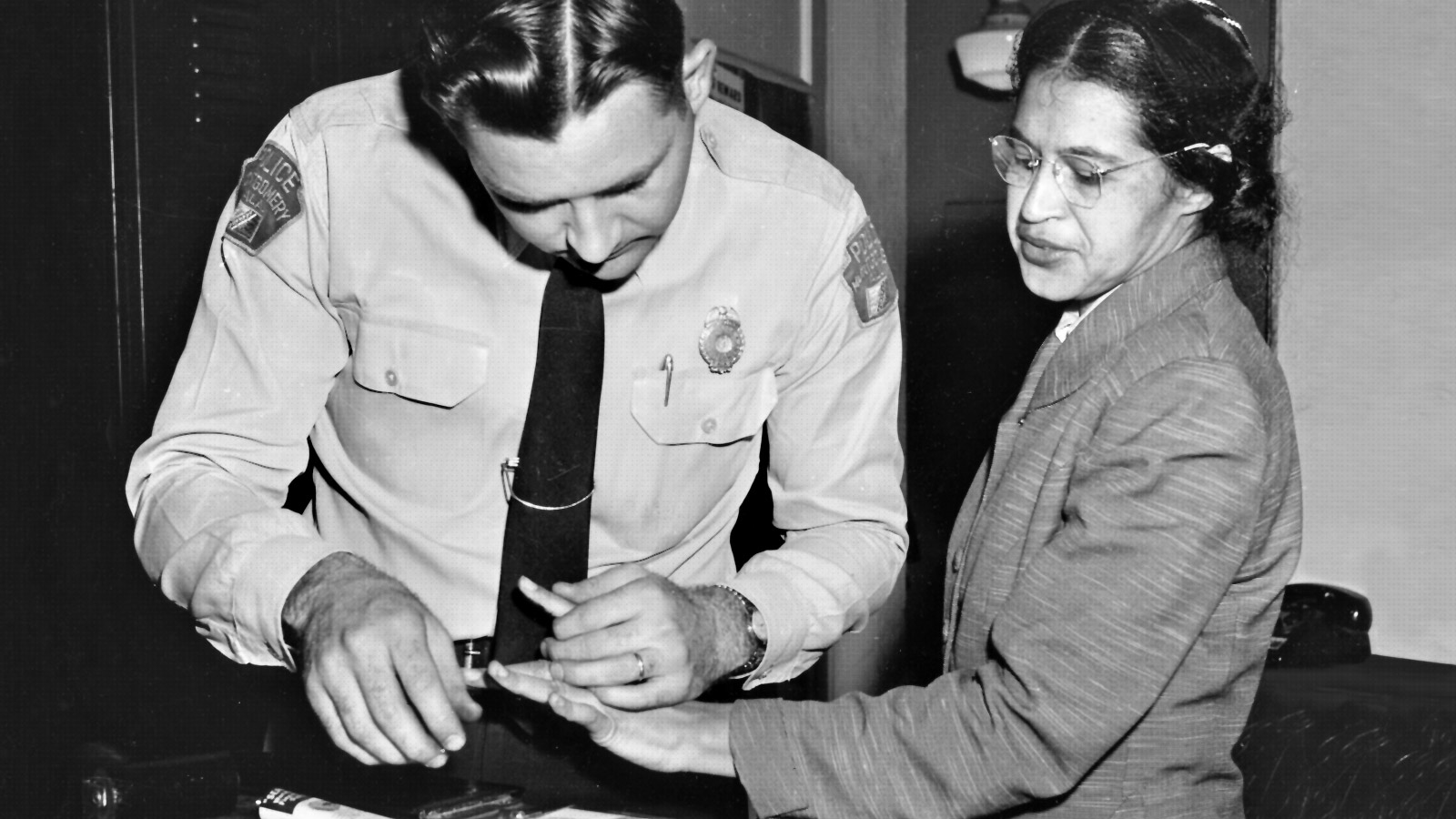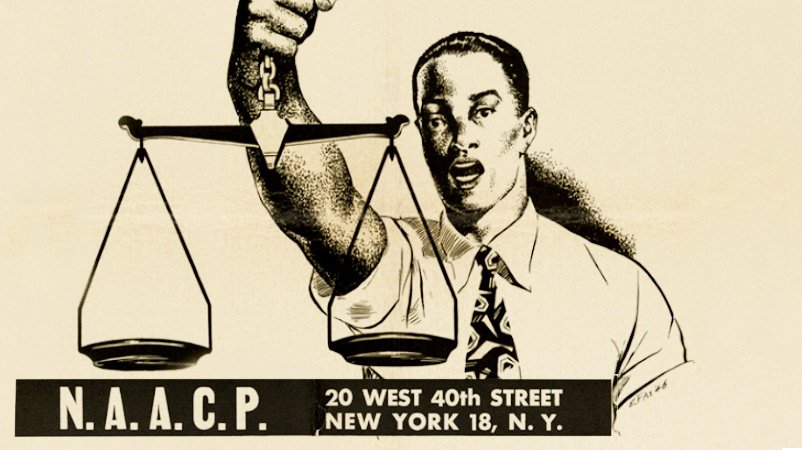
History/social studies teachers know they have to cover, at some point, Africa in world history courses and the African American experience in U.S. history courses. Here is a much abbreviated version of the California content standards related to Africa and the African American experience.
Note: Since we don’t have time to analyze all the varied state standards, we’ll use California as an example for the purposes of this article.
Elementary
Kindergarten: the Martin Luther King, Jr. holiday, Booker T. Washington, both optional
1st grade: none
2nd grade: George Washington Carver, Jackie Robinson, both optional
3rd grade: Frederick Douglass, Harriet Tubman, Martin Luther King, Jr., all optional
4th grade: Biddy Mason, optional
5th grade: Atlantic slave trade, slavery in the South, ideals of the Declaration of Independence
Of course, any teacher can teach any standard with a special focus on the African American experience. For example, while the 1st grade does not contain explicit references to the African American experience, it does include American ideals and essential documents, structured looks at diversity in school and community, comparison of the customs and social practices of varied cultures, etc. A good teacher sees the possibilities.
Middle School
6th grade World History & Geography: ancient Kush and Egypt
7th grade World History & Geography: medieval Ghana and Mali
8th grade U.S. History & Geography: lives and opportunities of Northern and Southern blacks, slave women gaining freedom during Western expansion, the abolition movement, the Civil War, and Reconstruction.
High School
9th grade: None in any area – there are no content standards for this grade.
10th grade World History, Culture & Geography: New Imperialism and nation building in Africa (optional)
11th grade: Urban divisions of race, ethnicity, and class; attacks on civil liberties; Marcus Garvey’s “back-to-Africa” movement; the Ku Klux Klan; the NAACP; growing political demands of African Americans in the post-WWII era; federal civil rights and voting rights; and racial concentrations in the cities.
12th grade U.S. Government and Economics: Again, nothing explicit, but as in the 1st grade any standard can be taught through the lens of the African American experience.
Of the above, the 11th grade U.S. History in the 20th century course sees the most extensive coverage of content standards related to the African American experience in the U.S. There are numerous individual sub-standards appearing in multiple units, and a full unit on civil and voting rights from 1941 to 1965 that includes presidential bans on segregation, court cases, school desegregation efforts, and civil rights movements and legislation.
We can do better than simply teach to standards
How often and how well are these standards covered? The quick snapshot of relevant standards above should immediately reveal some problems in terms of engaging and sustaining student interest. African empires and colonies existed thousands or hundreds of years ago and about that many miles away in distance. The Civil War was 150 years ago, and somewhere in the South, many hundreds of miles away. The civil rights movement was 50 years ago, and its landmark events also took place mostly in the South. As important as these histories are, how relevant are they to young students in the rest of America that lies outside the South? To put it more directly, whether a student is African American or not, how well and where can the 21st century student in America see herself in these curriculum units and standards?
When history is oversimplified, a frequent occurrence when inadequate teaching methods meet low literacy levels and academic skills, students learn something like the following: Mali and Ghana were powerful empires but eventually disappeared, so did European colonialism in Africa, slavery and the Civil War were horrible but ended when Lincoln freed the slaves, and the civil rights movement happened but black and white Americans still do not get along as well as they should and we just do not know why. Clearly, when history is oversimplified the content standards are no longer representative of the authentic African American experience, or any other historical experience.
Fewer African American students in the classroom can lead to less coverage of these topics
Demographic shifts of the 21st century compromise the relevance of the African American experience in the curriculum. In 2014, African American students were a little over 7.8 million of the nation’s 50.3 million students in public schools. That is 16% of the total, far less than the 50% of students who are white and the 25% who are Hispanic, and larger only than the 5% who are Asian (National Center for Education Statistics, Digest of Education Statistics, Table 203.50). African American students were 15% of all students in the Northeast region of the U.S., 14% in the Midwest, 24% in the South (now outnumbered by Hispanic students by 1%), and only 5% in the West. In other words, why should students in California and elsewhere care much about Africa and the African American experience in the U.S.?
Help for teachers interested in teaching about African American contributions
My guess is that teachers are as interested in African contributions to world culture as they are in those of any other continent. Teachers’ interest in the African American experience in the U.S. probably varies as much as it does in any other topic. If you have interest I will shortly direct your attention to a new curriculum that highlights African American contributions to American political, economic, religious, and social history.
Teaching the African American experience is a part of teaching social studies
The Black Lives Matter movement and the modern white supremacy movement have brought America’s strained relationship with its African American population to the forefront but have not directly addressed the fundamental cause of the problem.
The history/social studies curriculum is in a unique position to engage young students in asking and attempting to answer this essential question about the American experience. If students don’t learn about the African American experience in the class where they learn about the history of other Americans, this marginalizes their experience.
Teachers can help
Teachers, especially history/social studies teachers, can make the content standards relating to the African-American experience more relevant and useful to students by broadening study of this topic. When we teach about slavery and Reconstruction students should investigate what happened as a result of people having their dignity stripped from them —how did they react?
When we teach about the economic opportunities available to African Americans, students should study how it came to be that so many African Americans live in poverty in America, and the lingering effects of slavery and racism. When we teach about residential and school segregation students should explore how keeping people apart from the beginning produces animosities that keep them apart.
Use a curriculum that is inclusive
A new curriculum centered on the African American experience in the U.S. attempts to address the principal and derivative questions about their marginalization. Free of charge to teachers, the Bradley Digital History Project, available from the Tom and Ethel Bradley Center, California State University, Northridge, is a set of online lessons and other resources featuring photographs of Los Angeles’ African American community from the 1940s to the 1990s. Approximately 17,000 images show a community active in politics, law, civil rights, music and entertainment, sports, religion, and social organizations. A National Endowment for the Humanities grant enabled the digitization of the photographs and the writing of a curriculum also featuring oral interviews, maps, and ideas for classroom activities. The lessons explore the role of African Americans in the economy, struggles for adequate housing and civil rights and desegregated schools, and the work of Mayor Tom Bradley, the first African American mayor of a major American city.
Students need to know the history of the African-American experience
America isn’t teaching the African American experience adequately. Just as African Americans in the 1960s sang in hope that they would someday overcome, the rest of America should want to overcome its past. Through teaching the whole story of the African American experience, students develop a more thorough understanding of the country in which they live.
This blog can be used in the classroom to support teaching African American Studies, Ethnic Studies, or Black History Month.
Want to try hundreds of African American Studies-based activities?
Try a free 30-day trial of Active Classroom today
David L. Moguel is a professor of teacher education at the Michael D. Eisner College of Education, CSU Northridge. He holds degrees from Stanford University, the John F. Kennedy School of Government at Harvard University, and UCLA. David served as a John Gardner Public Service Fellow with Ramon C. Cortines, school superintendent, and as a presidential management intern for the U.S. Department of Education. He is the co-author, with Ron Sima, of Teach Me, I Dare You: Taking Up the Challenge of Teaching Social Studies, published in 2011 by the Social Studies School Service.



